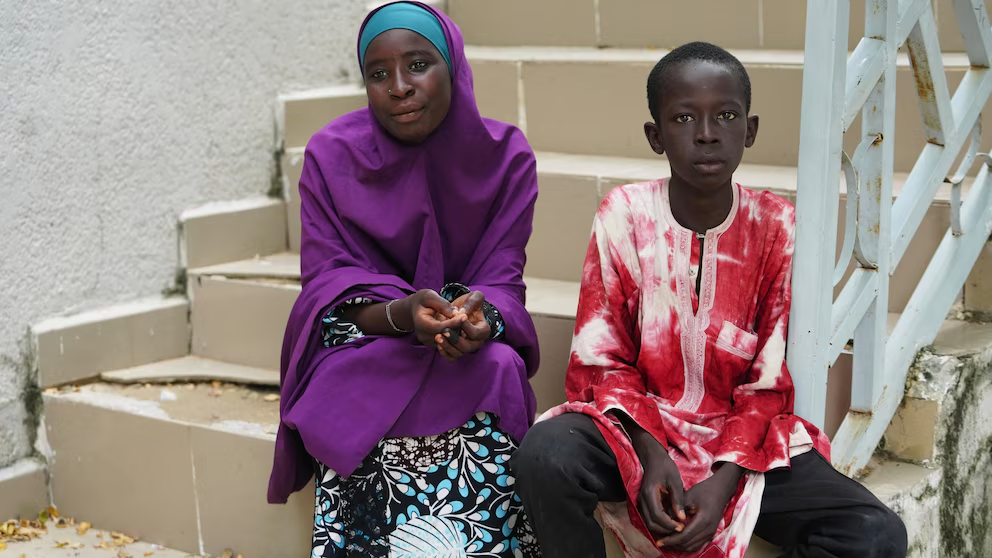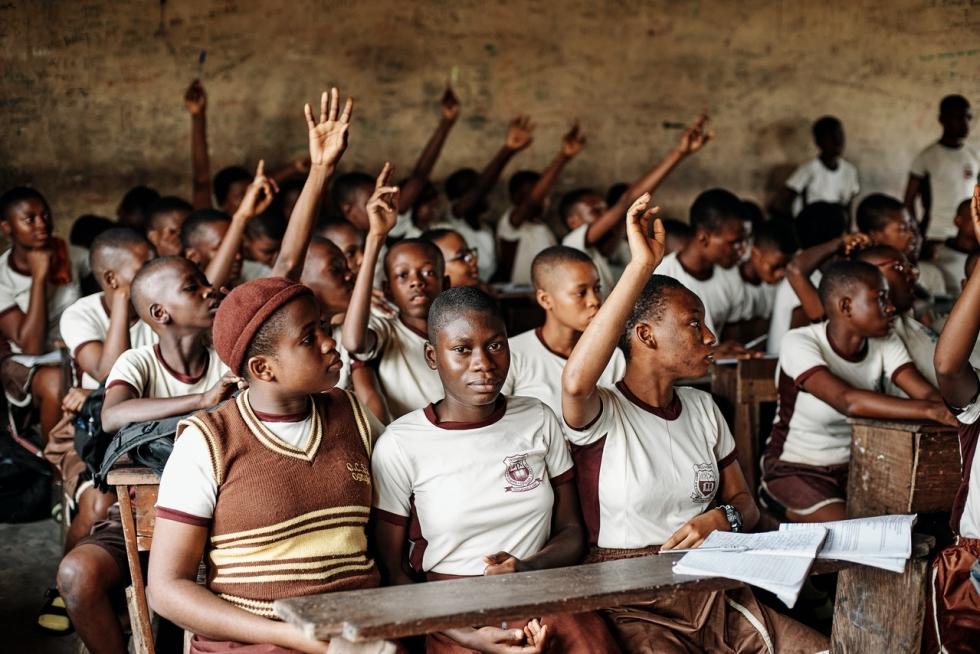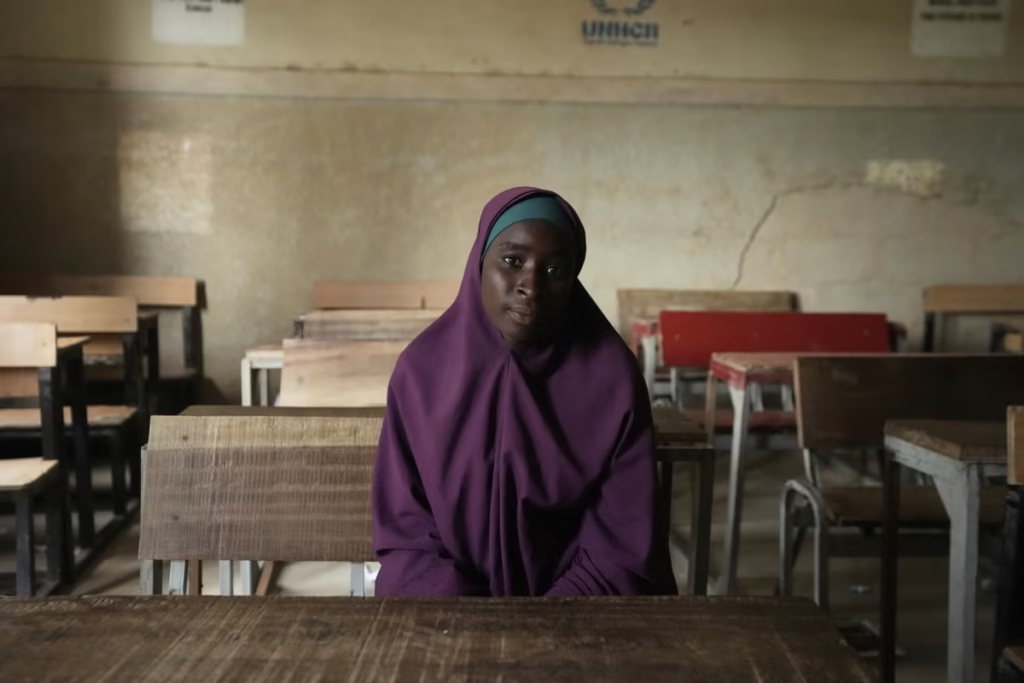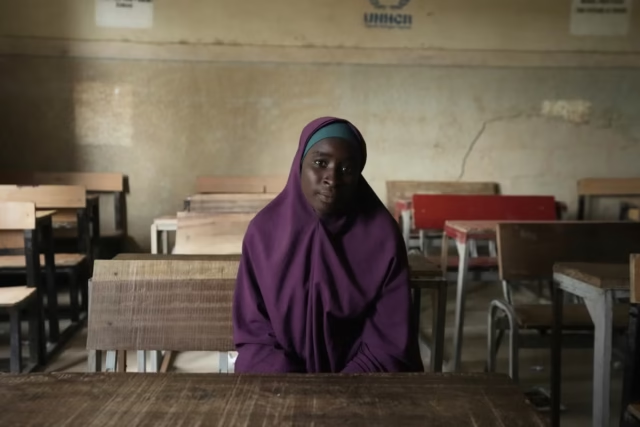In Maiduguri, the capital of Borno State, the once vibrant classrooms of the Future Prowess Islamic Foundation school are growing silent. A school that gave hope to orphans, displaced children, and victims of Boko Haram’s violence has been forced to send home hundreds of its pupils. The reason is simple but devastating: the school’s lifeline—funding from the United States—has dried up.
According to recent reports, the cut in U.S. support has pushed the school to release around 700 of its 2,200 students and dismiss 20 teachers. For a community already burdened by conflict and poverty, the sudden collapse of an educational refuge is not just a setback; it’s a wound that may never fully heal.
Table of Contents

Dreams Deferred: Students and Teachers Caught in the Crisis
Among those most affected is six-year-old Israel Peter, who once fled Boko Haram violence with his family. Israel’s dream was simple: to return to school and learn. Yet his admission request was rejected this year because there is no longer money to accommodate new students. “Now my future will not be great,” the boy said, his words echoing the pain of countless others in similar shoes.
The Foundation school was more than a classroom; it was a safe haven. Since its creation, it has educated nearly 3,000 children, offering not just academics but food, clothing, and a sense of stability. Without the U.S. aid, the school can no longer meet even the basic needs of its current population.
Teachers, too, have felt the sting. With 20 staff members laid off, the quality of instruction for the remaining students has plummeted. One teacher lamented that the school, which once stood as a beacon of hope in Maiduguri, is now “fighting for survival.”
The Larger Picture: Funding Fallout and Its Consequences
The U.S. Agency for International Development (USAID) has been one of the largest donors to education in Nigeria, contributing nearly $1.5 billion between 2023 and 2024 to support healthcare, education, and food security programmes. But with aid budgets shrinking and priorities shifting, many schools and NGOs in northern Nigeria have been left stranded.
Britain has also scaled back its own support, citing domestic financial pressures. The double blow has left local initiatives gasping for air.
Although Nigeria’s constitution promises free primary education, the reality is very different. Parents often pay between 5,000 and 15,000 Naira in “maintenance fees” each term—an impossible figure for families already displaced by violence and living on less than $2 a day. For children like Israel, the lack of external support means education is simply out of reach.
Experts warn that the consequences go beyond missed classes. Without schools to anchor them, vulnerable children become easy targets for recruitment by extremist groups. Borno State has been ground zero for Boko Haram’s activities for over a decade, and education has always been seen as one of the most effective shields against radicalisation.

What the Future Holds: Between Despair and Hope
Nigeria already has one of the highest numbers of out-of-school children in the world, with UNICEF estimating more than 10 million. In Borno, where insurgency has destroyed infrastructure and displaced entire communities, the closure of a single school reverberates like an earthquake.
Government spending on education remains between 4% and 7% of the national budget—far below UNESCO’s recommendation of 15% to 20%. Without a strong local safety net, international aid had long filled the gaps. Its withdrawal now creates a dangerous vacuum.
Former students testify to the power of the Future Prowess school. Yusuf Mustapha, now a final-year computer science student, said he owes his entire educational journey to the Foundation. “If I did not go to this school, I did not have anybody to sponsor my education,” he said.
But for many others, their journeys have been cut short. Ramatu Usman, turned away just before her final exams, now spends her days knitting caps to support her family. Her mother, in tears, stressed the importance of education in Maiduguri: “Those who don’t go to school, their lives are miserable.”
Advocates like Crystal Ikanih-Musa, formerly of the Malala Fund, argue that the U.S. withdrawal has left “a critical void that must be urgently addressed.” They fear that unless Nigeria steps up, an entire generation of children may be lost—not just academically, but socially and emotionally.

Conclusion: Education as a Lifeline
The story of the Future Prowess school is not just about funding cuts. It is about children whose lives depend on classrooms, teachers whose dreams are tied to their pupils’ progress, and a community fighting to resist the pull of despair.
When a Nigerian school loses U.S. aid, the consequences ripple far beyond its gates. Education is not merely about books and lessons—it is a shield against poverty, radicalisation, and hopelessness. If Nigeria and the world do not act quickly to fill the gap, hundreds of Israels and Ramatuts will be left stranded, their futures darkened before they ever had a chance to shine.
For now, the fate of one school in Maiduguri speaks volumes: without urgent intervention, the cost of silence will be measured not just in lost opportunities, but in lost generations.
Join Our Social Media Channels:
WhatsApp: NaijaEyes
Facebook: NaijaEyes
Twitter: NaijaEyes
Instagram: NaijaEyes
TikTok: NaijaEyes
READ THE LATEST EDUCATION NEWS





